
FTZ’ine May 2023
May 2, 2023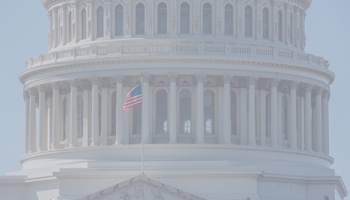
FTZ’ine July 2023
June 29, 2023Madam Secretary
The FTZ industry is breathing easier this month.
The U.S. Department of Commerce formally announced the appointment of Elizabeth Whiteman as Executive Secretary of the Foreign-Trade Zones Board. That means there is an experienced hand at the helm of this evolving program as it prepares to enter its ninth decade of fostering U.S. employment growth through international trade.
A deal on the debt limit reached between President Joe Biden and House Speaker Kevin McCarthy also helped bring a sense of normalcy to your Nation’s Capital. Small hurdles to final passage remain, but both sides are able to claim some victory which should assure a done deal.
Most ports around the country are experiencing declines in import volume on the order of 20% from last year. While the deal on the debt limit has ameliorated recent concerns about the U.S. economy, rising consumer prices have proven difficult to control. If this pressure pushes the Fed to additional increases in interest rates, that could put further pressure on inventory carrying costs, leading to a continued reduction in import volumes through the summer.

Top Story: ITC Study Documents Economic Contribution of FTZs
87%.
That was the key number for the FTZine staff in a special report released by the U.S. International Trade Commission (ITC) in the middle of last month.
The report compared the U.S. Foreign-Trade Zones program to competing programs in Canada and Mexico, as well as the competitiveness of products and firms operating in U.S. FTZs.
Included in the voluminous data sets generated by the study was the revelation that on average, FTZs with production authority use 87% domestic content, and only 13% foreign-status inputs. The study also documented the inability of U.S. foreign-trade zones to match benefits available to manufacturing locations in Canada and Mexico.
As part of its investigation, the ITC issued a questionnaire to firms producing in US FTZ's, and used the questionnaire results in its analysis. While the foreign-trade zone industry groaned at the task, the data collected offers the most in-depth look ever attempted at how manufacturing FTZs are disadvantaged relative to similar operations north and south of the border.
Findings from the study include that Canada and Mexico carried out substantial unilateral tariff reductions coinciding with the signature and implementation of NAFTA, which impact the attractiveness and usage of their respective FTZ-type programs.
Other examples of policies that affect the programs are the restrictions in USMCA on the use of drawback and duty exemption for goods produced in FTZs and exported to Canada and Mexico.
The study found that FTZs improve cost competitiveness primarily through duty reduction on shipments that make customs entry in the United States and duty exemption on direct export shipments. Firms producing in FTZ's experienced duty cost savings of $1.2B in 2021 using these two features of the U.S. program.
The report clearly outlines that in certain sectors, such as the automotive industry, firms cannot use the FTZ program to reduce their duty cost to zero as can similar operations in Canada and Mexico. It has yet to be seen how Congress will react to the findings.
The ITC is an independent, nonpartisan fact-finding agency, and conducted the investigation in response to a request from the United States Trade Representative in December, 2021.
Tech Tip: All Detentions Aren’t the Same
Did you know there are multiple types of detention orders? And, depending on the type you receive, the threshold of proof to be able to get your goods released varies.
Since the implementation of the Uyghur Forced Labor Prevention Act (UFLPA), many importers and FTZ operators automatically think of this when a detention order is received. But the full list of CBP detention reasons include:
• Suspected Intellectual Property Right (IPR) Violations: Response to an IPR detention may only require proof of the licensing of the detained product to release the hold on the goods.
• Countering America’s Adversaries Through Sanctions Act (CAATSA): Created a rebuttable presumption that goods are produced wholly or in part by North Korean nationals or North Korean citizens anywhere in the world are forced-labor goods and requires documentation of the labor involved.
• Withhold Release Order (WRO): Issued when there is reasonable evidence of force labor involved in the production of a good, response must include proof that forced labor was not used but the threshold is more easily achieved compared to other forced labor actions.
• Uyghur Forced Labor Prevention Act (UFLPA): Created a rebuttable presumption that goods mined, produced, or manufactured wholly or in part in Xinjiang Uyghur Autonomous Region (XUAR) of the People’s Republic of China, or by an entity on the UFLPA Entity List are prohibited from U.S. importation and the response threshold to prove otherwise is very high.
Because there are different types of detention, it is extremely important to read any detention order received very thoroughly, to know exactly what is needed in response. The different detention programs also have different submission protocols, so it is important to follow the directions outlined in the order.
If you have questions or comments about detention orders, please send them to Info@iscm.co.


Elizabeth Whiteman Named FTZ Board Executive Secretary
Elizabeth Whiteman was formally appointed to be the next Executive Secretary of the Foreign-Trade Zones Board last month. She now serves as the director of the entire FTZ staff at the U.S. Department of Commerce. Ms. Whiteman joined the FTZ staff herself as an economist in 1998, primarily reviewing subzone and production applications. She has also served as a regional representative and was responsible for providing outreach and education to the trade and other government agencies as well as preparing the FTZ Board's Annual Report to Congress.
Ms. Whiteman is only the seventh person, and the first woman, to hold the title since Thomas E. Lyons was appointed as the first Executive Secretary of the Foreign-Trade Zones Board in 1934.
Is Declining Import Volume Predicting U.S. Economy?
U.S. import volume from Asia continues to decline, according to the most recent analysis from Sea-Intelligence. Container traffic has recently been declining at a rate of around 20% versus last year.
For example, April TEU volume at the Port of Los Angeles was down 22% compared to April 2022.
The decline had been a trans-Pacific phenomenon until recently. US imports from North Europe fell 16.3 percent in March versus last year, following a 5.7 percent drop in demand in February, according to PIERS.
According to data from the U.S. Census Bureau, inventories are not declining at the same rate, indicating consumer demand may be slowing. The U.S. economy would not be far behind any retreat in retail spending.
Manufacturing employment bounced back quickly after the pandemic — which is unusual for recessions — but has contracted for the last two months. While layoffs in manufacturing remain low (as opposed to the tech industry), job openings and hires have sunk from recent highs.
This begs the question of whether the U.S. can avoid a recession, since cooling demand for goods usually signifies that consumers are feeling financially strained. “Manufacturing is always at the forefront of the recession,” notes Barbara Denham, a senior economist at Oxford Economics.
Europe-East Coast spot rates continue to decline along with the drops in volume. The fact that trans-Pacific rates fell first may simply be a reflection of the different import streams the two oceans carry.
While Asia-U.S. trade is dominated by consumer goods, Europe-U.S. trade is primarily driven by building supplies, beverages, furniture and mechanical equipment (including auto parts).
Construction-goods demand held up longer than consumer-goods demand, but now appears to be falling as well.
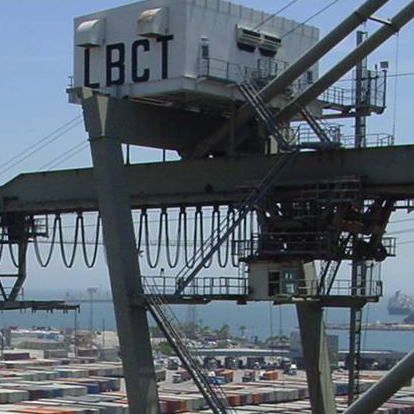
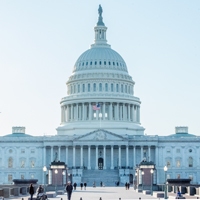
House Suspends Debt Limit To Avert Default
The House voted 314 - 117 last night to suspend the U.S. government's $31.4 trillion debt ceiling and avert a default on payment of the federal government’s debts.
The legislation caps federal spending for the next two years, and would claw back about $28 billion in unspent Covid relief funds. It eliminates $1.4 billion in IRS funding, and shifts roughly $20 billion in IRS funding to other areas of government.
Republicans control the House by a narrow 222-213 majority. But the deal needed support from Democrats to pass as 29 House Republicans voted against debate on the bill.
The bill now moves to the Democrat-controlled Senate, where it is expected to have an easier path to the finish line. President Biden has indicated he plans to sign the bill when it arrives at the White House.
The legislation would suspend the U.S. debt ceiling through Jan. 1, 2025, meaning that there would not be a limit until that date, postponing any further consideration until after the November 2024 presidential election.
The bill would also restart federal student loan payments after a lengthy pause that began at the start of the pandemic. And it would add work requirements for people up to 55 years old to get benefits under the Supplemental Nutrition Assistance Program and Temporary Assistance for Needy Families (the current threshold is 50 years old), with carve-outs for veterans and homeless people.
An analysis by the nonpartisan Congressional Budget Office found that if the bill's spending caps and targets are followed, it would reduce federal discretionary spending by $1.3 trillion over the next 10 years. Only the first two years of spending levels are binding under the legislation, however.
Georgia Ports Expand Inland Terminal Network
The Georgia Ports Authority (GPA) received federal environmental approval last month to develop an inland terminal near Gainesville, GA. The rail terminal is expected to increase capacity at the Port of Savannah while reducing truck traffic and wait times at the Port.
Georgia Ports anticipates the inland rail hub will initially process 60,000 TEUs per year.
With a round-trip truck route totaling 602 miles, this opening volume would alleviate approximately 36 million truck miles on Georgia highways in the terminal’s first year of operation.
That additional capacity will come in handy with two large EV projects just getting underway in the state.
Hyundai Motor Group and LG Energy Solutions announced plans on Thursday to build a $4.3 billion electric vehicle battery plant in Georgia, the latest clean energy facility to come to the state.
The facility is the second battery project under development in the state by Hyundai Motor Group and is expected to bring 3,000 new jobs to southeast Georgia by the end of 2025.
The U.S. Department of Transportation Maritime Administration (MARAD) awarded GPA a grant of up to $46.8 million to build the new inland container port along the I-85/I-985 corridor.
Earthwork is slated to begin in July, with terminal construction scheduled to begin January 2024 and end by July 2026.
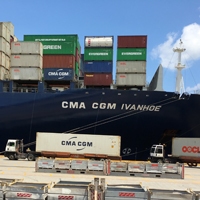
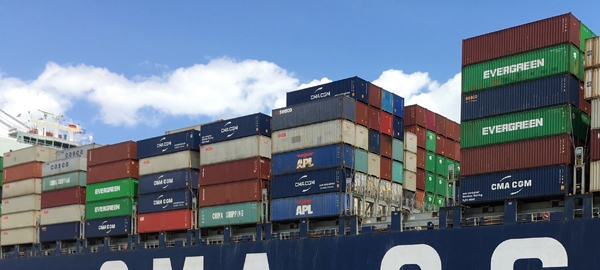
FTZ Staff Activity
- FTZ Board Staff processed a Termination (S-77-2023) in FTZ 105B on behalf of Night Visions Technology Solutions, LLC in Jamestown, RI on April 20, 2023
- FTZ Board Staff processed a Minor Boundary Modification (S-78-2023) in FTZ 151 on behalf of Better Brake Parts, Inc. in Lima, OH on April 26, 2023
- FTZ Board Staff processed a Minor Boundary Modification (S-79-2023) in FTZ 291 on behalf of Venture Global Calcasieu Pass, LLC in Cameron Parish, LA on April 27, 2023
- FTZ Board Staff processed a Minor Boundary Modification (S-80-2023) in FTZ 50 on behalf of Flexport International, LLC in Los Angeles, CA on May 1, 2023
- FTZ Board Staff processed a Minor Boundary Modification (S-81-2023) in FTZ 84AH on behalf of Kuehne + Nagel in Houston, TX on May 4, 2023
- FTZ Board Staff processed a Minor Boundary Modification (S-82-2023) in FTZ 29 on behalf of Arvato Digital Services, LLC in Sherperdsville, KY on May 4, 2023
- FTZ Board Staff processed a Minor Boundary Modification (S-83-2023) in FTZ 241C on behalf of Southeastern International Group, LLC in Hollywood, FL on May 8, 2023
- FTZ Board Staff processed a Minor Boundary Modification (S-84-2023) in FTZ 32E on behalf of KMP USA LLC in Doral, FL on May 9, 2023
- FTZ Board Staff processed a Minor Boundary Modification (S-85-2023) in FTZ 281 on behalf of Massy Motors and Machines Miami Distribution, Inc. in Miami, FL on May 9, 2023
- FTZ Board Staff processed a Minor Boundary Modification (S-86-2023) in FTZ 127F on behalf of M.G. Suber & Associates LLC. in Columbia, SC on May 10, 2023
- FTZ Board Staff processed a Minor Boundary Modification (S-87-2023) in FTZ 38 on behalf of Revman International Inc. in Spartanburg, SC on May 10, 2023
- FTZ Board Staff processed a Minor Boundary Modification (S-88-2023) in FTZ 225A on behalf of LZB Manufacturing, Inc. in Neosho, MO on May 11, 2023
- FTZ Board Staff processed a Staff Subzone Application (S-89-2023) in FTZ 244A on behalf of Skechers USA, Inc. in Banning, CA on May, 2023
- FTZ Board Staff processed a Minor Boundary Modification (S-90-2023) in FTZ 284 on behalf of Liberty Pumps, Inc. in Bergen, NY on May 17, 2023
- FTZ Board Staff processed a Minor Boundary Modification (S-91-2023) in FTZ 218 on behalf of Derecktor Fort Pierce, LLC in Fort Pierce, FL on May 22, 2023
Foreign-Trade Zone Board Activity
- Dorel Juvenile Group Inc. submitted a notification of proposed production activity for child strollers, walkers, and car seats within Foreign-Trade Zone 72 in Columbus, Indiana. MORE
- Mercedes-Benz U.S. International, Inc. submitted an application to expand Foreign-Trade Zone 98A with additional sites in Moundville, Vance, and Woodstock, Alabama. MORE
- Nissan North America, Inc. received approval to expand Foreign-Trade Zone 78A under the alternative site framework in Smyrna, Tennessee. MORE
- The City of New Bedford, Massachusetts received approval for reorganization of Foreign-Trade Zone 28 under the alternative site framework with a service area limited to Bristol and Plymouth Counties, Massachusetts. MORE
- CAN–ONE (USA), Inc. received authorization of production activity for aluminum beverage cans within Foreign-Trade Zone 81 in Nashua, New Hampshire. MORE
- Skechers USA, Inc. submitted an application to expand Foreign-Trade Zone 244A with an additional site in Banning, California. MORE
- Kawasaki Motors Manufacturing Corp., USA received approval to expand Foreign-Trade Zone 15E under the alternative site framework in Boonville, Missouri. MORE
- Albion Laboratories, Inc. received authorization of limited production activity for mineral amino acid chelates within Foreign-Trade Zone 30 in Ogden, Utah. MORE
- Corvus Energy USA, Ltd. received authorization of production activity for lithium-ion battery energy storage systems within Foreign-Trade Zone 129C in Bellingham, Washington. MORE
- The Lummi Indian Business Council applied to reorganize Foreign-Trade Zone 128 in Whatcom County, Washington MORE
- MannKind Corp. received authorization of production activity for treprostinil (a pharmaceutical) within Foreign-Trade Zone 76B in Danbury, Connecticut. MORE
- Givaudan Fragrances Corp. received approval to operate their facilities in Mount Olive, Flanders and Towaco, New Jersey as Foreign-Trade Zone 44P. MORE
- PolyVisions Holdings, Inc. submitted a notification of proposed production activity for plastic resin compounds within Foreign-Trade Zone 147 in Manchester, Pennsylvania. MORE
- AbbVie Ltd. submitted a notification of proposed production activity for an additional component of pharmaceutical products an additional pharmaceutical finished product within Foreign-Trade Zone 7I in Barceloneta, Puerto Rico. MORE
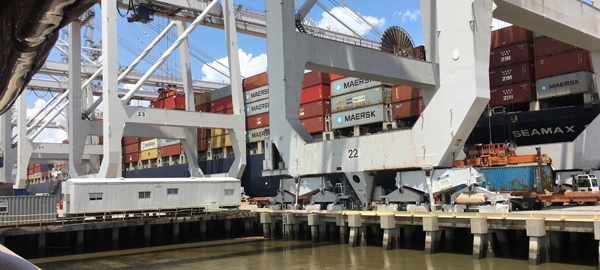
Madam Secretary:
The FTZ industry is breathing easier this month.
The U.S. Department of Commerce formally announced the appointment of Elizabeth Whiteman as Executive Secretary of the Foreign-Trade Zones Board. That means there is an experienced hand at the helm of this evolving program as it prepares to enter its ninth decade of fostering U.S. employment growth through international trade.
A deal on the debt limit reached between President Joe Biden and House Speaker Kevin McCarthy also helped bring a sense of normalcy to your Nation’s Capital. Small hurdles to final passage remain, but both sides are able to claim some victory which should assure a done deal.
Most ports around the country are experiencing declines in import volume on the order of 20% from last year. While the deal on the debt limit has ameliorated recent concerns about the U.S. economy, rising consumer prices have proven difficult to control. If this pressure pushes the Fed to additional increases in interest rates, that could put further pressure on inventory carrying costs, leading to a continued reduction in import volumes through the summer.

